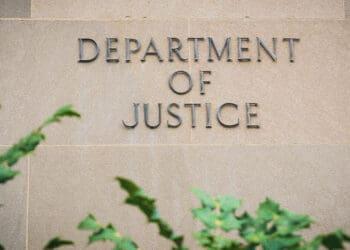As some companies retreat from their diversity commitments, others are doubling down on DEI despite mounting political pressure. CCI contributing writer Michael McGrady Jr. explores how corporate leaders are navigating this polarized landscape, backed by new legal guidance from state attorneys general who seek to affirm the legitimacy of workplace inclusion programs.
DEI experts urge companies to maintain diversity, equity, inclusion and accessibility policies as the Trump Administration continues its campaign against workplace diversity strategies.
This is especially true now that Attorney General Pam Bondi leads the DOJ. On her first day, Bondi issued an internal memorandum to the department’s workforce requesting that they prepare and investigate, civilly and criminally, private companies that reportedly clash with the administration’s interpretation of Title VII of the Civil Rights Act of 1964.
Before Bondi was confirmed as the nation’s top law enforcement officer, President Donald Trump issued a tranche of controversial executive orders in the early days of his second administration. One order requires executive branch agencies and recipients of federal funding to end DEI policies, claiming that inclusivity and diversity policies violate the law. That order, titled “Ending Illegal Discrimination and Restoring Merit-Based Opportunity,” seeks to impose Trump’s worldview on the private sector, a view that seems to equate corporate DEI policies with higher education affirmative action practices, which have been struck down by the Supreme Court. Trump has characterized DEI policies as “radical,” “wasteful,” “immoral” and “illegal,” while citing little to no evidence that corporate DEI is against the law.
Many critics of the administration in the private and nonprofit sectors have characterized these executive actions as problematic. And even with frequent news reports of companies like Target unwinding their DEI goals, many other companies remain consistent in their support of DEI goals, potentially risking the ire of the Trump Administration, including possible investigation by Bondi’s Justice Department.
DEI isn’t illegal, attorneys general say
A coalition of 16 state attorneys general, all of them Democrats, issued legal guidance Feb. 13 that says DEI is lawful so long as it’s done in a legally compliant, narrowly tailored manner.
The group — composed of the AGs of Arizona, California, Connecticut, Delaware, Hawaii, Illinois, Maine, Maryland, Massachusetts, Minnesota, Nevada, New Jersey, New York, Oregon, Rhode Island and Vermont — advise businesses operating in their jurisdictions that “Preferences based on protected characteristics in hiring and promotion are unlawful under federal law, except under narrow circumstances,” referring to affirmative action practices that were found unconstitutional by the Supreme Court in a landmark case dealing with higher educational admissions at private and public university systems.
“To be clear: the executive order cannot and does not prohibit otherwise lawful practices and policies to promote diversity, equity, inclusion, and accessibility,” the guidance says.
It goes on: “Initiatives promoting diversity, equity, inclusion, accessibility, various skill sets, and different perspectives and experiences in the workplace are not the same as affirmative action and do not involve providing preferences to individuals based on protected characteristics in discrete hiring, promotion, or job retention decisions. … Well-designed diversity, equity, inclusion, and accessibility initiatives also call on employers to pay attention to the … impact their policies and practices have on different groups of current and prospective employees [overall].”
This interpretation aligns with the observations offered by Alison Taylor, a clinical associate professor at the Stern School of Business at New York University. Taylor is the former executive director of Ethical Systems, an incubator for academic research on ethical business practices at the Indiana University Kelley School of Business. She still advises the group as a collaborator.
“There’s a world of difference between an effective approach to driving inclusion and a legalistic program based on ticking the box that alienates part of the workforce and makes life more difficult for the people it was designed to help,” Taylor told Corporate Compliance Insights.
She explained via email, “The imperative should be focused on inclusion, psychological safety and working with people with different values. … There are legal and reputational risks either way as the issue [of DEI] has become so polarized, but discrimination is still illegal.”
Social Studies: ESG’s Hardest Lesson?
As ESG meets resistance in some quarters, organizations are discovering that better measurement of social factors could help counter the skepticism. S-RM's Natalie Stafford breaks down how companies can transform nebulous social goals into concrete, measurable outcomes.
Read moreDetailsSome stand firm on DEI
Some companies have cleaved to their DEI programs in the face of backlash.
Ben & Jerry’s, for example, takes a strong pro-DEI stance: “We call on other companies and institutions to prioritize this important work and not be intimidated or bullied by lawmakers and others who seek to ban policies and programs to advance the causes of racial and social justice,” the ice cream maker says on a DEI-focused webpage.
Wholesale club retailer Costco, which employs more than 300,000 people, has also sought to reaffirm its commitment to DEI, withstanding pressure by far-right groups, conservative think tanks and a coalition of Republican state attorneys general to reverse course on DEI. At its annual meeting in January, Costco’s board of directors unanimously declined a shareholder proposal to review and gut the company’s DEI programs.
In a letter to Costco CEO Ron Vachris, the Republican AGs, led by Texas Attorney General Ken Paxton, urged the company to end so-called “woke” DEI policies, citing the landmark 2023 Supreme Court decision in Students for Fair Admissions v. Harvard, which upended decades of legal precedent by overturning affirmative action policies in higher education.
But DEI is not affirmative action, and, at least so far, it is not illegal when federal laws, such as Title VII employment protections, are applied.
“I think that many companies are having the opportunity to really take a look at diversity, equity, and inclusion programming,” in a manner similar to the Students for Fair Admissions ruling by the high court, said Jeanine Conley Daves, an attorney for Littler Mendelson in the law firm’s Manhattan office. (In unrelated cases, Littler has represented major private companies facing challenges to their DEI policies from advocacy groups.)
“Obviously, there has been a heightened attention on DEI programs,” Daves explained in an interview, affirming the legal analysis provided by the coalition of Democratic state AGs. “[Many] companies are reviewing their programs to ensure that they are in compliance with Title VII, which has not changed in any form or fashion, in terms of what Title VII allows and doesn’t allow.”
Diversity programs lead to greater profitability, research says
For companies that have stuck by their DEI efforts, it often comes down to cultural priorities, as some leaders want to reinforce an inclusive culture and ensure their workforce reflects a variety of perspectives, Daves said.
It is worth noting that the sentiments espoused by Costco’s board of directors happen to reflect the operational realities of recruitment and human resources management professionals regarding hiring practices. John Gilmore, managing partner for executive search firm BarkerGilmore, told Corporate Compliance Insights that blaming DEI on executive placements is misinformed.
“I think the confusion by many is that when they think of DEI, they feel like people are getting the jobs who don’t deserve to get the job,” explained Gilmore, whose firm specializes in search and placement for chief compliance officers, chief legal officers and in-house counsel. “When you are placing a chief compliance officer, there is no margin for error when you’re finding the right person. You need to have a person who has that combination of technical abilities: They need to know what an efficient compliance program needs to look like to align with a business.”
The professionals his firm hires must have certain necessary “soft” skills, the personal qualities that affect how an individual works and interacts with others, Gilmore said.
“The only gripe that people have [with DEI] is that they argue, ‘People are only getting jobs only because they’re diverse.’ That’s simply not the case,” he said. “When you’re using an executive search firm like ours, the companies we work with are fairly sophisticated. They know the stakes are high, and they’re not going to make a bad hire just for diversity’s sake. We find the best-qualified candidates and possibly they happen to be diverse.”
And diversity has an impact on the bottom line, according to a McKinsey study: “The most diverse companies are now more likely than ever to outperform less diverse peers on profitability. [The companies] in the top quartile for gender diversity on executive teams were 25 percent more likely to have above-average profitability.”




 Michael Dean McGrady Jr., M.Sc., is a contributing writer at Corporate Compliance Insights. He is a trade journalist and investigative columnist who primarily covers niche entertainment industries.
Michael Dean McGrady Jr., M.Sc., is a contributing writer at Corporate Compliance Insights. He is a trade journalist and investigative columnist who primarily covers niche entertainment industries. 









